

Did you know that purchasing a large life insurance policy in Egypt can sometimes be more affordable than in the USA? It's true, and this unexpected difference could save you thousands!
With economic shifts and global changes, understanding life insurance options has never been more critical. It’s time to uncover the differences and opportunities available in two very distinct markets.

While many assume the USA offers more competitive insurance deals due to market size, Egypt's life insurance scene is shaking things up. It isn't just about lower costs; it’s about the flexibility in policy structures and return benefits. But that’s not even the wildest part…
You might think American policies offer better coverage due to stringent regulations and market demands, but some Egyptian insurers provide perks like investment returns that can outperform typical US-based options. The tax implications can also be surprisingly advantageous. But that’s not even the wildest part…
Are these insurance strategies as foolproof as they seem, or do they carry hidden risks? What happens next shocked even the experts…
In Egypt, life insurance policies often come with noteworthy tax advantages that can greatly affect the overall cost and value of the policy. For many policyholders, these benefits translate to significant savings. In contrast, U.S. policyholders face a challenging tax landscape where benefits can be more limited if not structured properly.
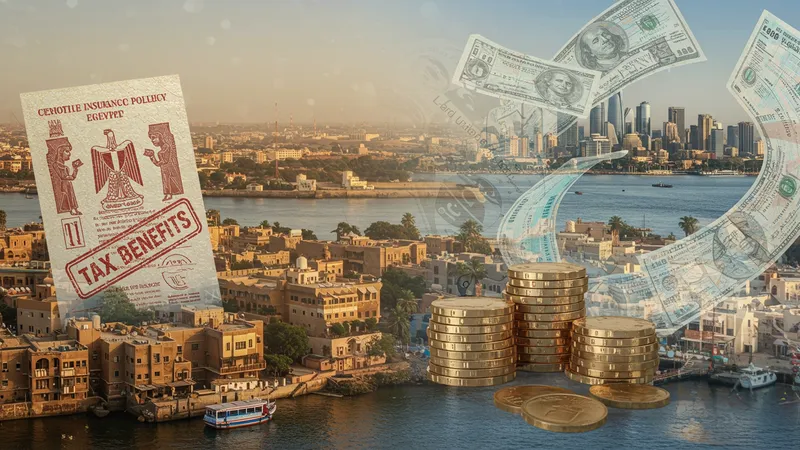
Understanding Egypt's tax treaties and local guidelines could mean the difference between maximizing your investment or facing unexpectedly high costs. But there’s one more twist—Egypt’s tax laws can change rapidly, keeping both policyholders and insurers on their toes.
On the flip side, the U.S. offers a more predictable system, albeit often at a higher cost. Policies can be designed to take advantage of certain loopholes, but expert advice is essential. What you read next might change how you see this forever.
The intrigue doesn't end there; there's a hidden industry within Egypt that helps international clients navigate these policies. Many savvy investors have already made the leap, discovering profound benefits. But wait, there's more to unravel...
One striking revelation when comparing life insurance policies is the vast cost difference. While Egypt offers policies as low as $15/month, the USA’s can skyrocket to upwards of $100/month for similar coverage. This gap isn't just a financial curiosity—it's driving a new wave of global insurance buyers.
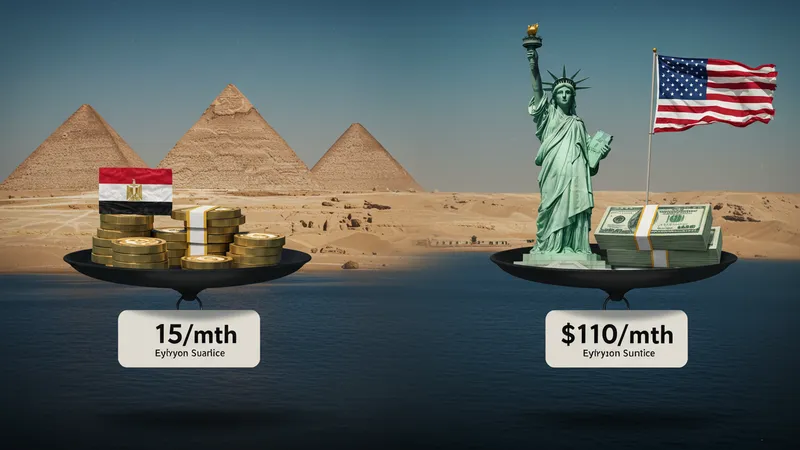
The reasons behind these pricing contrasts are myriad. They include differences in living costs, government subsidies, and the competitive landscape of each country’s insurance market. However, there’s more beneath the surface. What’s hidden away is how policies are packaged, often including unexpected add-ons.
While Egyptian policies might initially seem enticingly cheaper, they often incorporate investment components meant to enhance value over time. This dual-purpose strategy, though clever, can sometimes introduce complexity and risk. But that’s not all you need to know...
In the U.S., transparency rules the day. Policies are straightforward but come with premiums for peace of mind. The sales approach stresses clarity and security, crucial in a market driven by consumer protections. Yet, this assurance comes at a price. What lies beyond is even more complex than expected.
Currency dynamics play a significant role in the attractiveness of Egyptian life insurance policies. The country’s fluctuating currency can dramatically influence policy costs and benefits. During periods of devaluation, foreign buyers often find themselves at a financial advantage.

However, this same volatility can be a double-edged sword. While the initial savings might seem appealing, ongoing policy management requires a sharp understanding of economic trends. But here’s the kicker—some insurers even offer exchange rate guarantees.
Interest rates and inflation are more predictable in the U.S., providing a degree of stability not always guaranteed abroad. These factors heavily influence policy pricing and are diligently considered in American offerings. But the real surprise is often missed—how these numbers play into long-term planning.
Considering currency and inflation impacts on these investments uncovers a nuanced picture. The savvy policyholder must be constantly informed and adaptive to fully capitalize. But discover this next twist, and everything you thought you knew might change.
Life insurance policies in Egypt aren't just cost-effective; they're incredibly customizable. Many providers design policies that can be tailored to fit personal and family needs, far exceeding the adaptability found in the U.S. market.
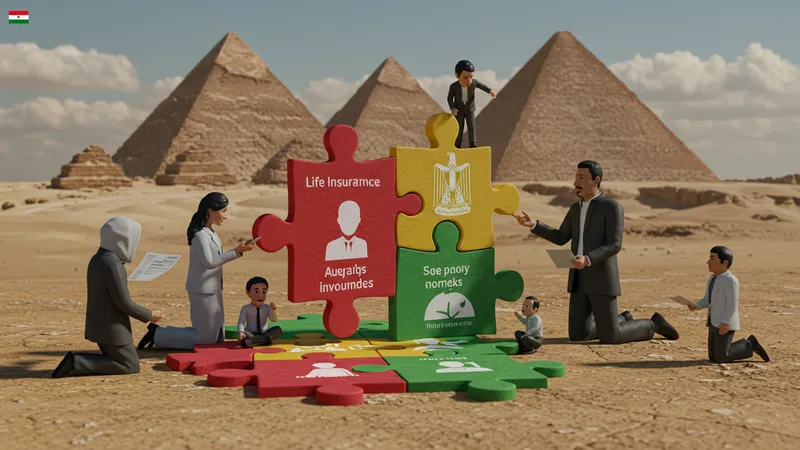
This allows Egyptian policyholders a level of flexibility that’s particularly appealing to expatriates and digital nomads looking for adaptable solutions. But, the cherry on top is how these customizable packages can be mixed with investment opportunities.
In the U.S., while there are customization possibilities, they tend to revolve around riders such as disability add-ons or accidental death coverage, usually at an extra cost. Still, the transparency around these options ensures confidence in decision-making.
This comparison unveils a compelling insight: The game of customization isn’t as one-sided as it appears. Even experts find themselves surprised at what’s possible overseas. There’s an intriguing factor still waiting to be explored…
Long-term commitment can vary dramatically between these two contrasting insurance landscapes. In Egypt, policyholders often find shorter-term commitments with the potential for renewal bonuses. This approach offers less pressure and more appeal to those unsure about long-term financial obligations.

The brevity of these policies doesn’t just mean more flexibility; it means that policyholders can reassess and realign priorities with economic changes much quicker than their American counterparts. But there's a catch—not all policies permit easy renewals.
Conversely, in the USA, the tradition of long-term policies provides more consistency and stability. While this reassures policyholders with stable expectations, it demands a greater initial commitment, which is not always easy to alter down the line.
In light of this, the decision between short-term adaptability and long-term stability becomes pivotal. But a new angle on this debate awaits, altering how investors might rethink their strategies.
The fluctuating political and economic climate in both Egypt and the USA deeply impacts the life insurance market. In Egypt, ongoing political changes can lead to shifts in the insurance sector, influencing policy terms and affordability dramatically.
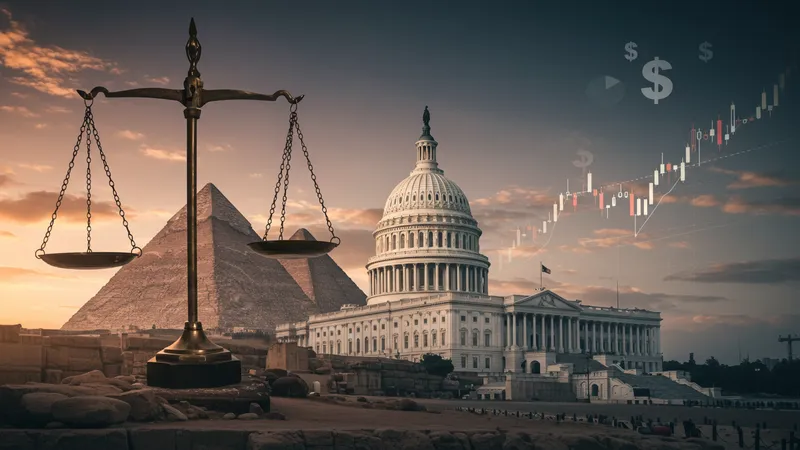
These rapid shifts aren't necessarily negative; they often bring new regulations that modernize and protect policyholders better. But, one must also consider that such climates can breed uncertainties, making informed decisions vital. But here’s an unexpected insight—it isn't as unpredictable as it seems.
By contrast, the relatively stable political scene in the USA provides a more predictable environment for insurance markets. However, economic downturns can still leave indelible marks on the industry, impacting policy performance and pricing.
The key takeaway—while navigating unpredictable climates in Egypt can seem daunting, those who stay informed and agile often come out on top. This profound realization will shape the narrative of policy acquisition. But there’s one last twist on the horizon…
With the cultural backdrop dictating much of life insurance focus, Egypt’s policies are deeply entwined with familial and religious considerations. Policies frequently align with cultural values, embodying a sense of shared responsibility and community.
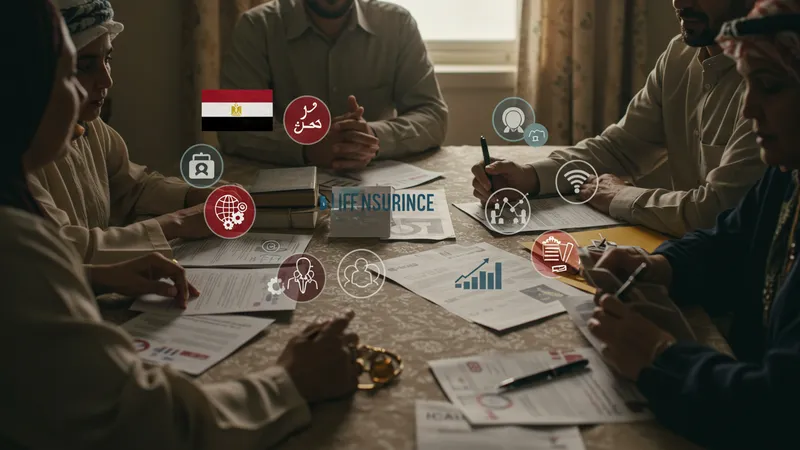
This cultural slant plays out in how benefits are extended to family members, a perk not as common in Western policies. Understanding this can redefine how one approaches not only policy selection but financial planning as well. But more layers await discovery.
In contrast, the U.S. market, with its diverse population, is less influenced by singular cultural norms. Policies tend to emphasize individuality and personal investment, catering to a different set of priorities.
Thus, recognizing how cultural attitudes shape policy frameworks in both countries invites deeper insight into these insurance landscapes. But, this is just the tip of the iceberg for what's still unseen. The real depth of this story lies ahead.
Every policy comes with exclusions and limitations that can significantly affect its overall utility. In Egypt, exclusions are often tied to lifestyle choices and health factors, tailored to local living conditions and healthcare standards.
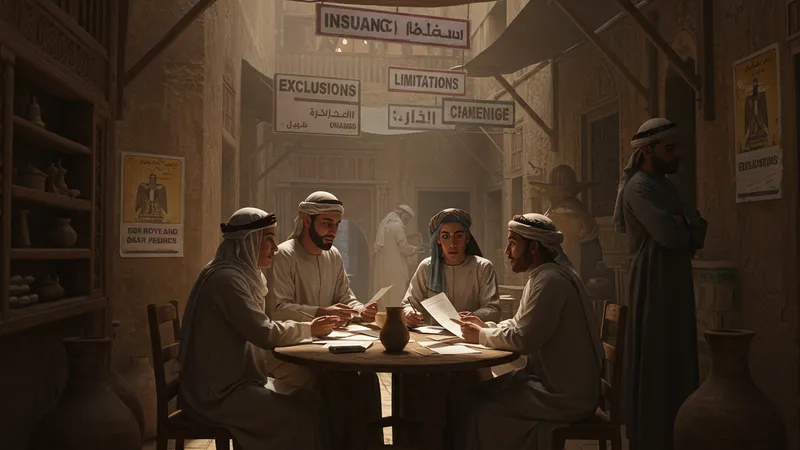
Learning about potential limitations can either present a hurdle or open doors to renegotiations and policy alterations. But here’s the kicker—some providers are taking a more inclusive approach, changing the face of what's standard.
In the U.S., exclusions are more likely influenced by comprehensive regulations intended to safeguard buyers, but they nonetheless include personal risks that can fluctuate in coverage scope. Understanding these nuances can help navigate potential pitfalls.
Unlocking these limitations crucially informs prospective policyholders. Being forewarned means being forearmed. But there’s an even larger revelation waiting to surface, one that might just recalibrate your entire approach.
An intriguing aspect of Egyptian life insurance is the investment component typically bundled within policies. These benefits can transform a simple life policy into a powerful financial tool, especially when navigating economic unpredictabilities.
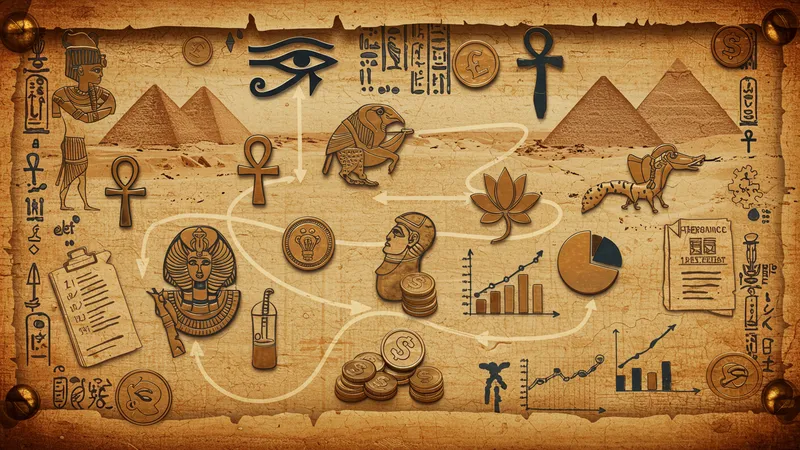
This dual-purpose insurance often piques the interest of financially savvy buyers, giving them leverage found less frequently in typical U.S. offerings. But wait, these opportunities come with their own set of challenges and considerations.
In the USA, while some policies offer investment options, they tend to be straightforward, often lacking the layered integration seen in Egyptian policies. These U.S. options focus more on stable, predictable returns over adventurous financial maneuvers.
Establishing how investment plays into life insurance unveils deep insights into risk vs. reward dynamics. But delve deeper to find a revelation that can pivot your understanding of policy advantages entirely.
The speed and reliability of claim processes differ substantially between Egypt and the USA. Egyptian policies often emphasize straightforward claims with localized service, which can be both a boon and a bane depending on bureaucratic nuances.

This setup might appeal to those valuing direct interactions, but complexities in procedural requirements can sometimes cause delays. The surprising part is how digital transformations are changing these dynamics rapidly.
In the U.S., the moderate but more technology-driven landscape tends to streamline processes, resulting in quicker resolution times. The wide adoption of digital solutions means that policyholders can often handle claims with minimal hassle.
However, even in this advanced digital environment, unforeseen delays can occur without warning. Understanding the landscapes of claims processing is crucial, but more practical insights remain hidden just beneath the surface.
Customer service can make or break one’s insurance experience in both Egypt and the USA. Egyptian insurers often offer a personalized approach, with many agents directly connected to their clientele, fostering trust and when needed, quick responses.

However, such personalized service doesn't always translate to perfect experiences across the board. High demand can sometimes strain resources, altering support dynamics unexpectedly. Here's a twist—the rise of online support could redefine accessibility wholly.
In the USA, scale and technology intertwine to provide robust customer service platforms. This means comprehensive support, although sometimes at the cost of the personal touch found in Egyptian models. Navigating this dichotomy reveals intriguing differences.
Evaluating support efficiency across continents sharpens the lens on what truly matters in customer engagement. Yet, the most compelling support insights remain just a page away, poised to alter perceptions permanently.
Looking ahead, the future of life insurance in both Egypt and the USA appears ripe with innovation and transformation. With Egypt increasingly opening its doors to technological advancements, the landscape may change dramatically over the coming years.

But one unexpected factor looms—the role of blockchain and emerging technologies in revolutionizing how policies are managed and executed. It's an evolution that could redefine everything we know about this industry.
In the USA, regulation and consumer demand are forecasting a more mature, technology-integrated future. The adaptation of artificial intelligence in underwriting promises consistency and speed, with potential ethical concerns lurking beneath.
Ultimately, the future holds dynamic changes for life insurance across both countries. The revelations in this exploration pave the way to more informed, confident decisions—but there’s still one core special twist to uncover that finalizes the complete picture.
After delving into both Egyptian and American life insurance policies, a clearer understanding emerges: the decisions and commitments transcend mere financial considerations, touching upon personal and cultural priorities.

Each market offers unique advantages and potential pitfalls that require insight and foresight. Whether it’s the investment components in Egyptian policies or the regulatory assurances in U.S. options, balancing these elements against personal needs is key.
In conclusion, navigating these life insurance landscapes involves recognizing the profound implications each choice carries. The journey requires not just knowledge, but the strategic ability to act upon it to secure one’s future.
This in-depth exploration encourages stakeholders, investors, and policymakers to remain curious and adaptive. While there is much to consider, one last question persists—How will you choose to leverage these insights effectively?
As the world becomes ever more interconnected, these insights could shape an entirely new approach to life insurance, blending global advantages with localized wisdom. It’s time to embrace the possibilities and engage with the future equipped with newfound knowledge.
Now that you're armed with these insights, share this article if you found it enlightening. Bookmark it for future reference, and invite friends to join this exploration. Your engagement can spark further learning and discussion, creating a ripple effect of informed readers ready to take control of their financial narratives.